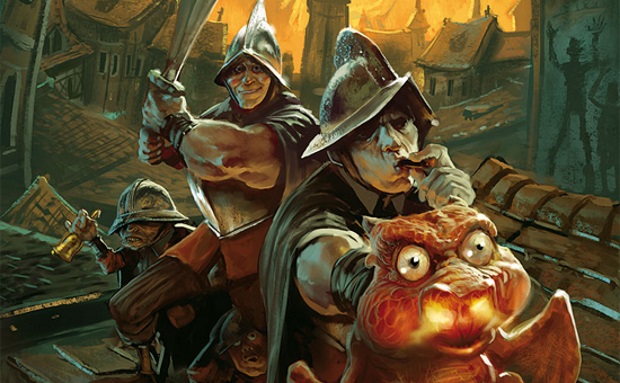

Nor does it mean that Pratchett isn’t bringing out his amazing character work from top to bottom – of course, there’s Vimes, Colon, Nobby, and Carrot, but Vetinari, CMOT Dibbler, the Librarian, and Ankh-Morpork itself.

None of which is to say that Guards! Guards! isn’t laugh-out-loud funny (it is), or that it’s not well written (it is), or that the plot is less that dazzling in its complexities (this is the book that introduces the idea of L-space, in which libraries take up more space than physically is possible, for reasons that make wonderful sense to anyone who loves books). Yes, in broad strokes, Guards! Guards! is a great riff on secret heirs to the throne, gold-hoarding dragons, but on a larger level, it’s the first time that Pratchett really started using Ankh-Morpork as a microcosm of human society – which, in turn, means that it’s the first time we see Pratchett’s insightful, trenchant mind truly cut loose. After all, Guards! Guards! was only the eighth book in the series, and was the first time that Pratchett started turning his satirical focus not just on fantasy tropes and human foibles, but on larger ideas – power, control, judgment, fear, and aspects of human nature that aren’t always played for laughs.

Seeing the Watch exist solely as a joke of a police force which serves less as a deterrent to crime and more as a home for failures is all the more satisfying when you know that Pratchett’s plan for the Watch are so much more satisfying and ambitious than you’d ever imagine from this book.īut really, the same could be said for the Discworld series. Revisiting to the beginning of Terry Pratchett’s Watch series (itself a piece of the larger Discworld series) after reading the rest of the arc is a fascinating experience, if only because of the dramatic irony of seeing Vimes and company at what we know will be the low point of their lives.


 0 kommentar(er)
0 kommentar(er)
